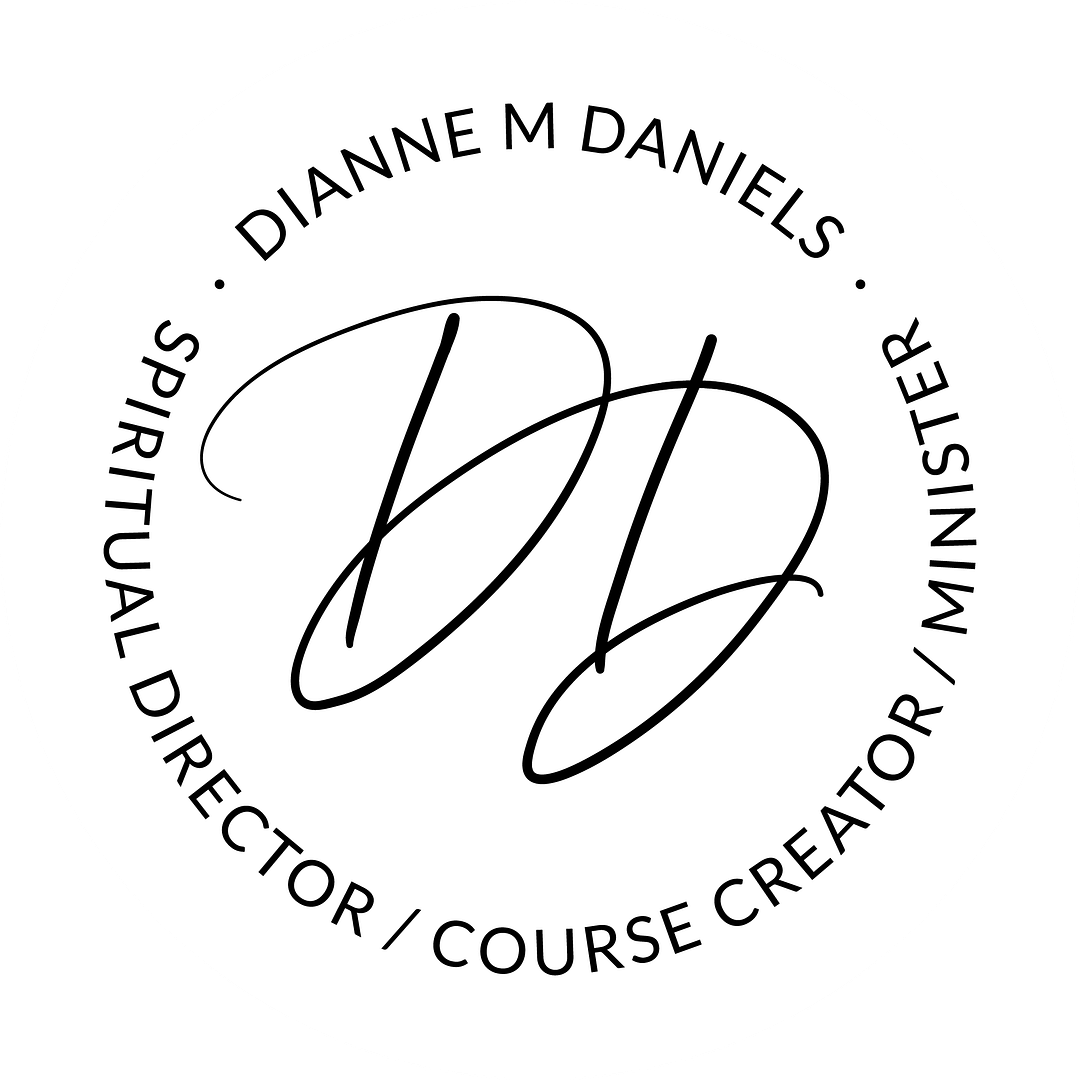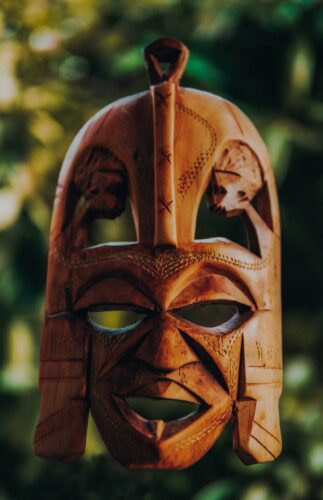I delivered this sermon for the Unitarian Universalist Church of Danbury, CT in March 2020 – I was guest preaching there and I was honored to have the chance to share this sermon with them, and now with you.
Good morning UU Congregation of Danbury! I am pleased and honored to be with you today, and excited to share my thoughts about Knowing Yourself and Knowing Your Ancestors.
I am a 20+ year member of the Unitarian Universalist Church of Norwich, Connecticut, and throughout my time there, I’ve had the good fortune to have help in discovering who I am – knowing myself as I was and who I was becoming – in addition to being gently (and sometimes, not-so-gently) challenged to live up to my personal potential.
I because a member of the UU Church of Norwich after being invited to attend Kwanzaa ceremonies at the church by a neighborhood elder by the name of Lottie B. Scott.
During my time at UUCN, I’ve heard speakers from many different paths, heard beautiful classical music, and learned a LOT.
Religion and My Immediate Family
My family history with religion was not the easiest one: my mother was a disaffected Baptist and wanted little to do with “organized” church or indeed any religion as long as I can remember. My father, I now know, was following a non-traditional path at the time – I remember vividly him praying in front of 7-day glass candles at his altar in the basement of our home. We learned early on not to touch the items on Daddy’s altar, and never to blow out the candles.
It’s of particular sadness to me that we lost him to a stroke when I was only 9 years old – I never got to ask him about his practice, or indeed, much of anything about his upbringing and his early life, which helps to drive my journey to this day.
Inherent Worth, Justice & Equity, and Truth
The UU church taught me about the seven principles of the UU faith, and three of them resonated deeply with me:
I loved the first principle regarding the inherent worth and dignity of every person – it meant that I HAD worth and dignity that I didn’t have to EARN. It was mine by virtue of my birth.
The second principle – exercising justice, equity, and compassion in human relations – felt like an oasis versus the racial tensions I’d grown up with. I experienced the lack of commitment to this principle when people treated my family differently just because of the color of our skin, and human compassion could be hidden away or lost due to stereotypes.
The fourth principle – the free and responsible search for truth and meaning – was evident in my interactions with the other members of the faith, who encouraged me in my search.
I am unfortunately the last living member of my immediate family, and finding out who my ancestors were because more important to me as the years rolled by.
Some years ago, I attended a fundraiser for Carole Moseley Braun during her run for President of the United States, when I saw a lady across the room that could have been my father’s twin sister, but who was a stranger to me.
What she re-ignited in me was a desire to know more about my family. I had a good amount of information about my mother’s side of the family, but almost nothing about my father.
Knowing who your Ancestors were – about their lives, their struggles, and their victories – can help you to understand who you are. I know in a general sense of the difficulties faced by Africans during the slave trade, and the horrid conditions they had to endure. What that tells me is that they had deep reserves of strength – and that their indomitable spirits live on in me.
I grew up fighting against injustice – related to more than my faith’s principle about the inherent worth and dignity of every person, it’s also a part of my DNA. My ancestors fought for their lives, their dignity, and their freedom. They suffered the loss of their culture and language, the loss of connections to family and heritage, and were forced to live with and work beside people who they did not know, but with whom they formed bonds based on their shared experiences.
Searching Beyond Our Borders
In 2017, I started seeing information and stories about a new type of DNA analysis that promised the possibility of finding what specific tribe in Africa an individual was related to.
I submitted my DNA for the African Ancestry DNA test and was thrilled to discover that I am genetically related to the Fula people who live in the Republic of Guinea-Bissau on the continent of Africa.
Learning more about the Fula and their strengths, challenges and lives have made me even more proud of my ancestry. I feel less alone than I had previously and have a new focus for my Ancestor Veneration.
Finding our ancestors can help us to recognize influences and strength from multiple regions and groups – for me, that means religious and cultural fragments from Africa, from Protestantism, and Native American beliefs.
There existed specific cultural and spiritual resonances between Africans and Native Americans, including connection to and reverence for nature, including the wind, the moon, the rivers, the ocean, the forest and living creatures. The African spiritual and cultural influences were significant in the formation of early African American culture.
Differences in climate, dress patterns, and living quarter organization between the colder northern regions and the warmer southern regions of slave territory also had an impact on local spiritual development and practices. Local plants that were a part of local pharmacopeia and the landscape were different than previous experience on the continent of Africa and within separate regions of the US.
Common and essential components of traditional African religion that were carried over and preserved among the African ethnic groups in the American slave population included ritual water immersion (attributed by mainstream religions as baptism), ancestor reverence, and the use of herbal and naturopathic medicine.
It can be difficult to document ritual practices within a community – in my specific case, my family members couldn’t pass down their knowledge because so many of them are deceased. Many of the community, family, and individual practices were not written down, but instead transferred through oral histories and mentorship – an elder teaching a younger community member the rules and procedures.
Certain practices have been passed on through the generations, and one way to continue the practice is to sit down with a family elder and ask them questions, turning on a tape recorder so you can listen without worrying about taking notes. All you’ll need is a smartphone – they come with an application that will let you record voice memos, and these can be enormously powerful clues and specific instructions related to ancestral practices.
Ancestral Veneration
I have an ancestor altar set up in my home that represents the connection to my ancestors both known and unknown. Photos and personal items belonging to my ancestors are placed with reverence, and I regularly speak to my ancestors, invoking their energy and spirit and their positive influences in my life. If your elders had a bookshelf, a curio cabinet, or something similar where treasured photos and items were kept safe, that can function as an altar – whether they called it that or not – and a focus for your practice.
Calling out the names of my ancestors helps me to invoke their energy and I feel closer to them – a stronger connection on an emotional and psychic level.
You and I can discover and carry forward the strength and perseverance of our ancestors and work to be worthy of their pride and love. I feel a strong sense of responsibility to the brilliant, strong, committed and spiritual people who came before me, and who passed along more than just memories – they left me a foundation that surpasses the physical.
May you feel a positive connection to your elevated and honored Ancestors…may you learn the lessons of your challenged Ancestors and retain the wisdom to avoid repeating their mistakes…may you discover deep wells of strength, honor and love…and may your journey be more rewarding than in your wildest dreams.
Amen. Ase. Blessed Be.
I closed my service with a spoken meditation entitled “A Survival Meditation”, originally written by Rev. Nathan C. Walker. I’ve paraphrased the language to fit my personal aesthetic, and I began and ended the meditation with my singing bowl.
**Strike singing bowl**
breathing in…i am aware of my pain and sadness.
breathing out…i am aware that i am not my pain or sadness
breathing in…i am aware of my past mistakes
breathing out…i am aware that i am not my past mistakes
breathing in…i am aware of my anger.
breathing out…i am aware that i am not my anger.
breathing in…i am aware of my despair
breathing out…i am aware that i am not my despair.
breathing in…i am aware that peace is within my reach
breathing out…i am aware that i am worthy of peace.
breathing in…i am aware of love.
breathing out…i am aware that i am worthy of love.
breathing in…i am aware of joy that lifts my heart
breathing out…i am aware that i am an agent of joy.
breathing in…i am aware of hope for the future
breathing out…i am aware that i am an agent of hope for my future and for the future of our world
breathing in…i am aware.
**Strike singing bowl***






